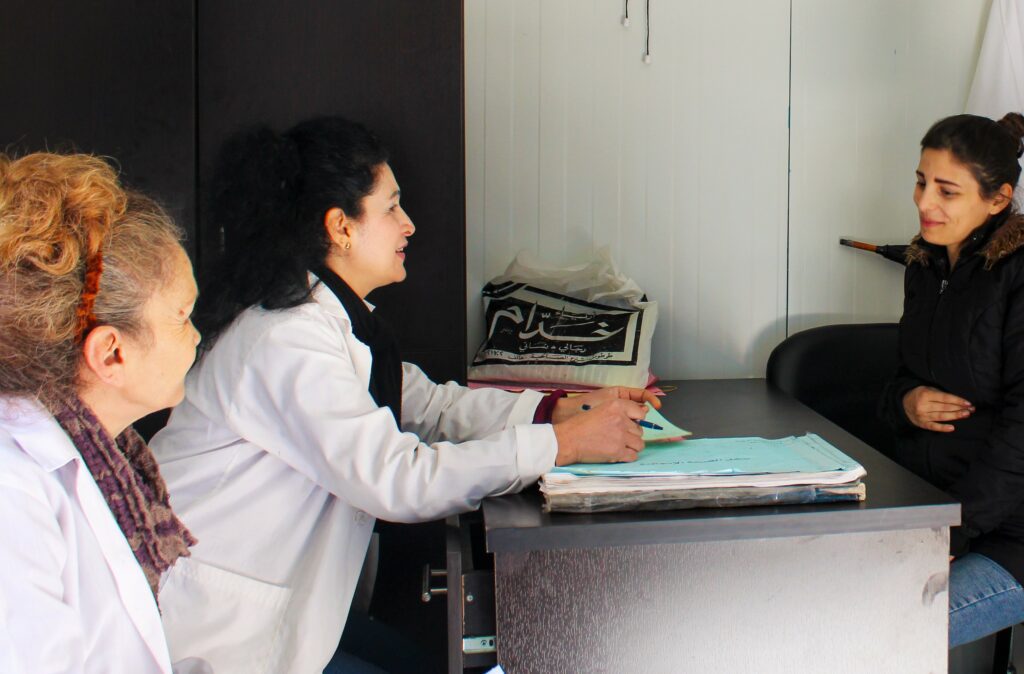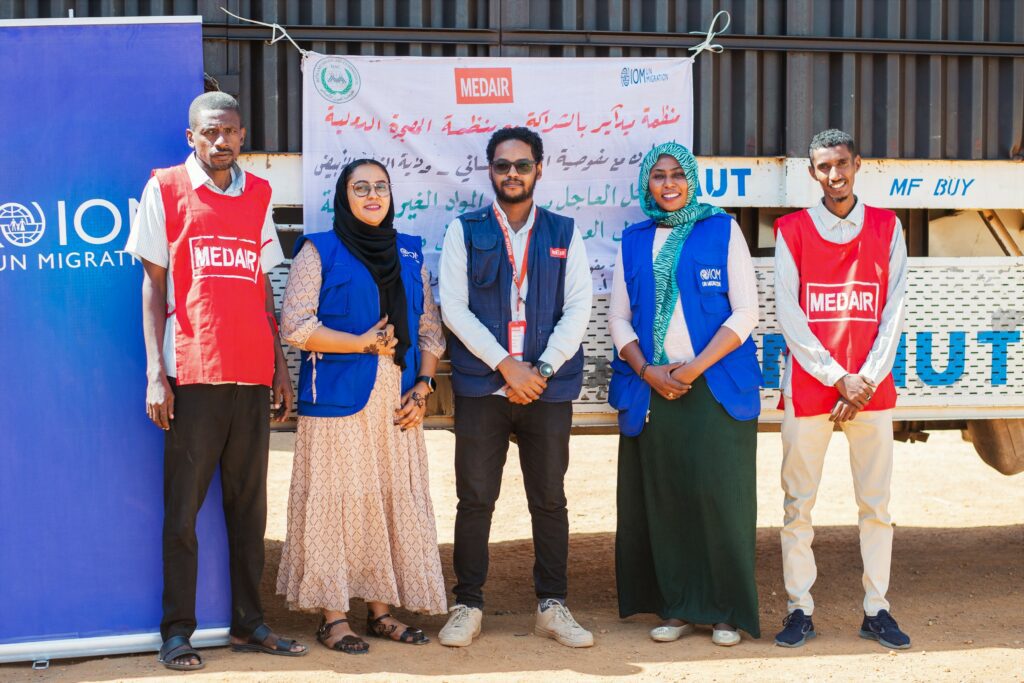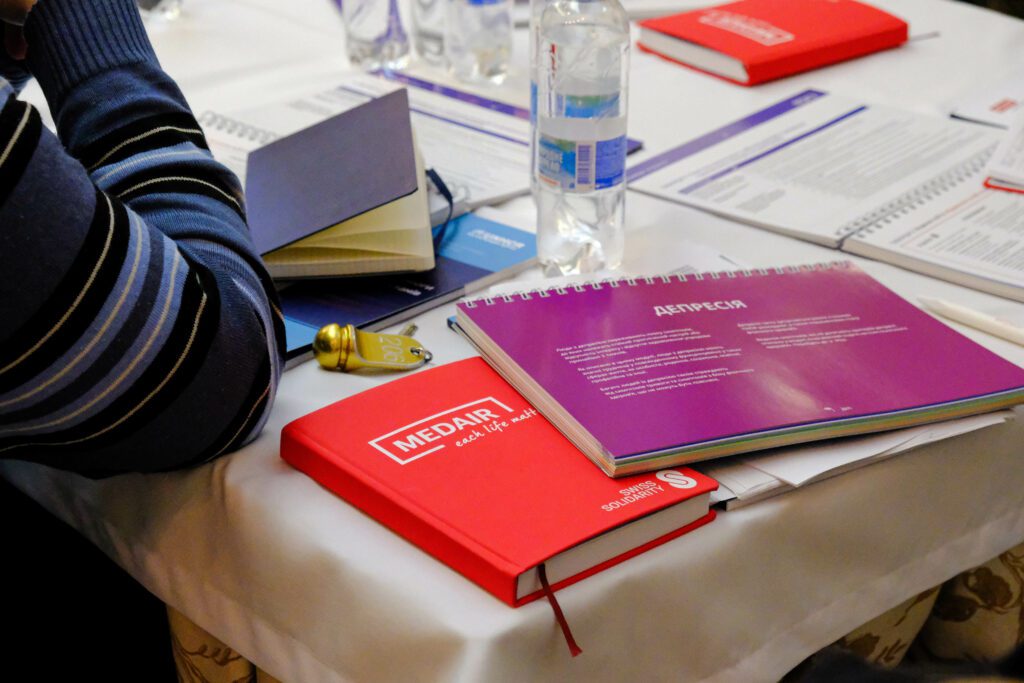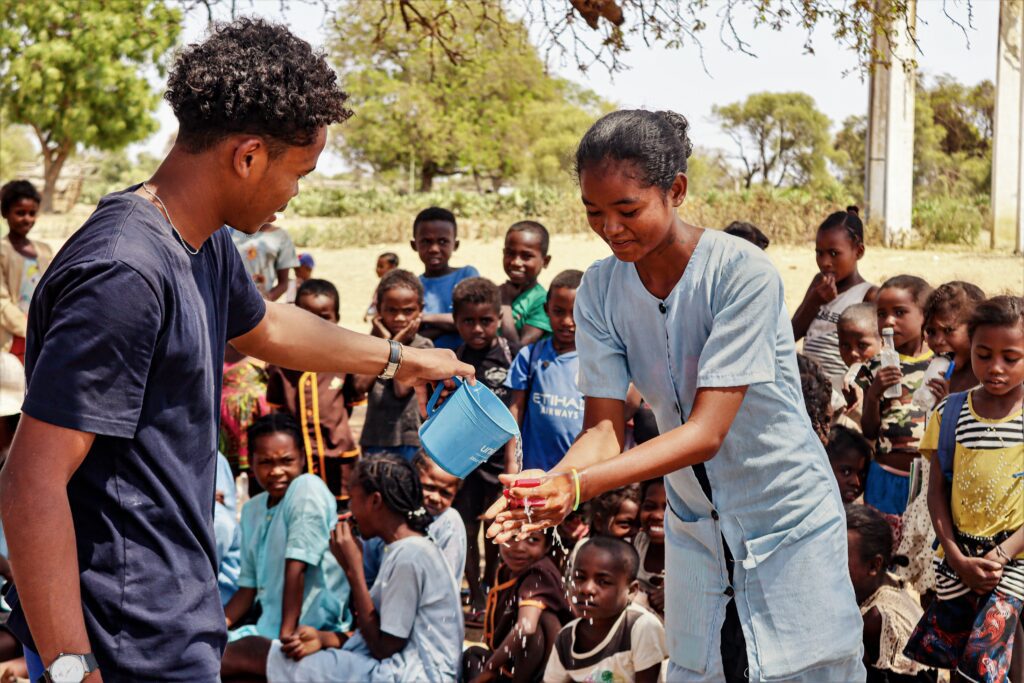“I was 4-months pregnant. That night I woke up with explosions because the rockets landed not far from my home. I was afraid to stay there, I wanted to save my unborn child, so I decided to flee,” said Inna.
We met the woman at a lyceum in Bohorodchany, the town in the west. A shelter for IDPs was set up on the premises of the primary school. Desks were removed from the classrooms, and bunk beds were placed instead so that people could live there. When we entered the hall, I smelled food, because the kitchen was located in the middle of a school hall and someone was cooking. At that moment, I noticed that a door of one of the classes was being opened and a red kitten ran out to meet me. 29-year-old Inna, an IDP from Kramatorsk, a town in the east, which is located close to the front line, went to pick it up. I immediately started stroking the cat and it purred. I remembered my two lovely cats who were waiting for me at home. The woman invited us to come inside and agreed to share her story.
“This is how we`re living now. When I was a child, I always dreamed of a school nearby. And now my dream came true, I live in a school,” joked Inna.
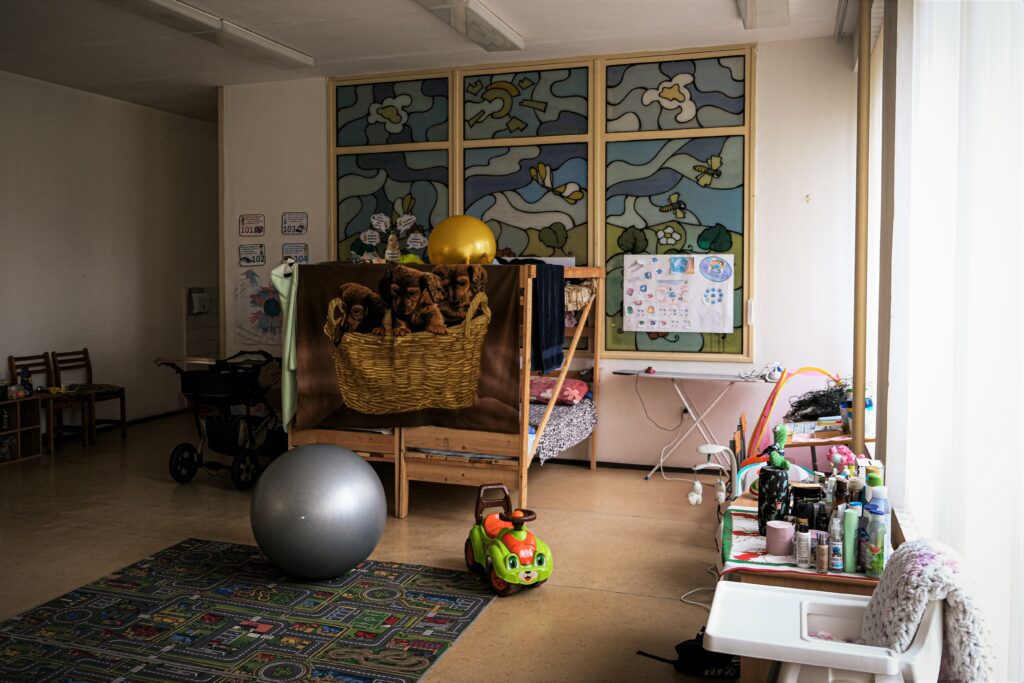
The board hangs on the wall, the globe stands on the desk, and there are lots of children’s toys around. Community members and volunteers brought them when they found out that Inna was pregnant. Five months after moving to Bohorodchany, the woman gave birth to a daughter in one of the local maternity hospitals. Inna named the newborn Khrystyna. The baby has turned 7 months recently. She is already smiling, showing interest to the kitten and posing for the camera. The only thing which Inna complains about is that sometimes Khrystyna doesn’t sleep well. “The lyceum is not a very comfortable place to live with a small child. Children study here, run, school bells ring, and often this makes Khrystyna wake up,” added the woman. Inna’s husband stayed in her hometown and most of all she dreams about returning home. But she does not plan to return yet, because the danger is still high.
“I want my house not to be damaged and my loved ones to remain alive. As many of them stayed there. For example, my cousin was drinking coffee near the train station when the rockets landed there. God had mercy on her, she was not even injured. But 50 people died there, including children,” said Inna.
The team visited the lyceum at lunchtime, and 7-month-old Khrystyna already had time to sleep, so we said goodbye and went to get to know the other residents of the shelter. At the beginning of the crisis, 65 IDPs lived here, now there are 27. The men were relocated to other shelters. In the hall, I saw our psychologists, who were conducting a session for other residents of this facility. People were told about stress, given advice on how to cope with it and how to control their emotions. Among the listeners, I noticed a woman sitting with her daughter. This is 42-year-old Svitlana with 14-year-old Violetta.
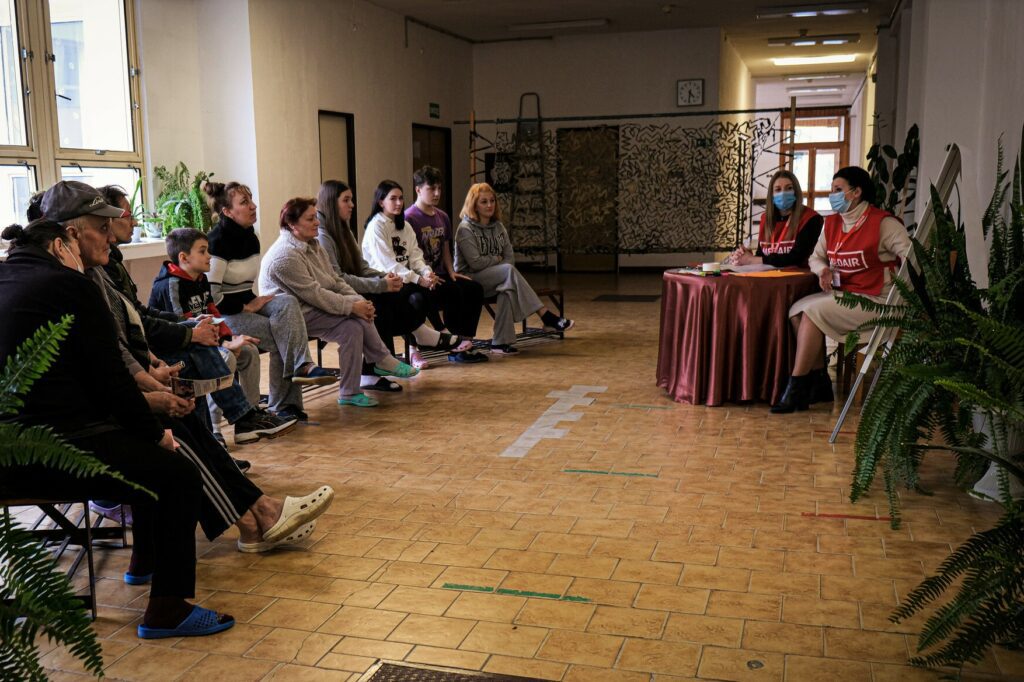
“It’s very interesting and it helps to distract yourself at least for a little while. But when we start recalling the past, I cry and can’t calm down,” said Svitlana.
A year ago, she and her daughter fled from Pokrovsk, a town in eastern Ukraine. Constant shelling made normal life impossible. The woman does not know what happened to her apartment, because all her friends also have left Pokrovsk. When Svitlana moved to Bohorodchany, she found out about another problem, which she shared with me. “I faced another struggle, my personal one. One day I ended up in the hospital, where I was diagnosed with cancer. Therefore, now I save my life not only from missiles but also from illness,” said the woman.
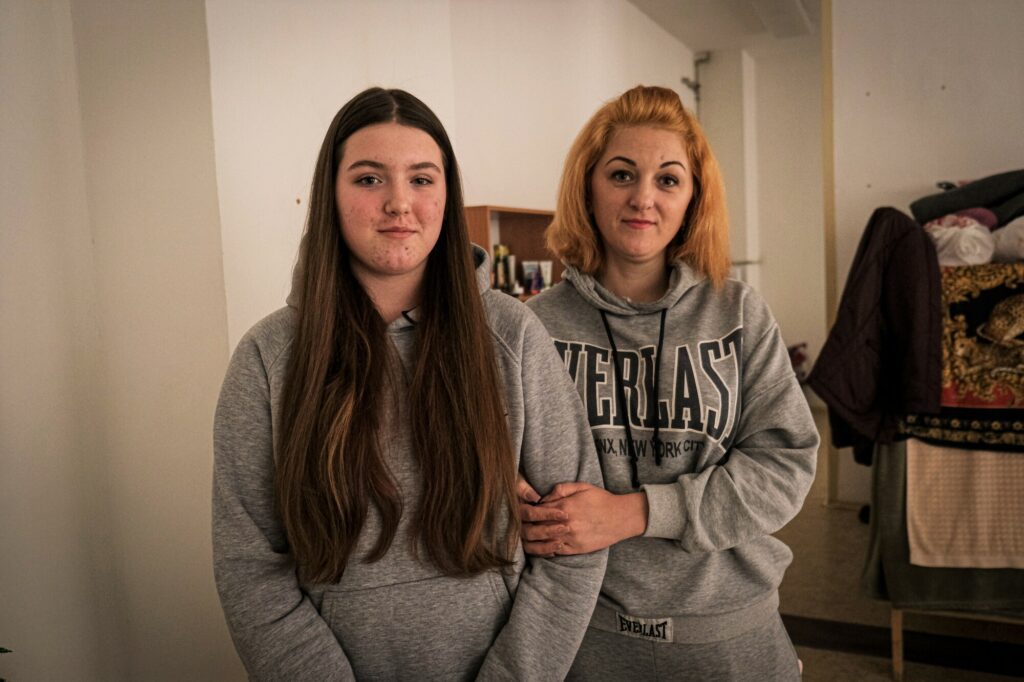
During our conversation, another resident of the shelter approached us. I was fascinated by how open these people are and how willing they are to communicate. And at that moment I wanted to talk with them as long as they wanted. The woman introduced herself as Valentyna. She came here from the east, now her hometown is occupied, and her house is destroyed. “I don’t know how to live on. I live only one day. I cry almost every day. Because no matter what, I have no confidence in tomorrow. It is not clear how long it will last. And I want to live and dream of returning home, but until there is peace, it is impossible,” shared 63-year-old Valentyna.
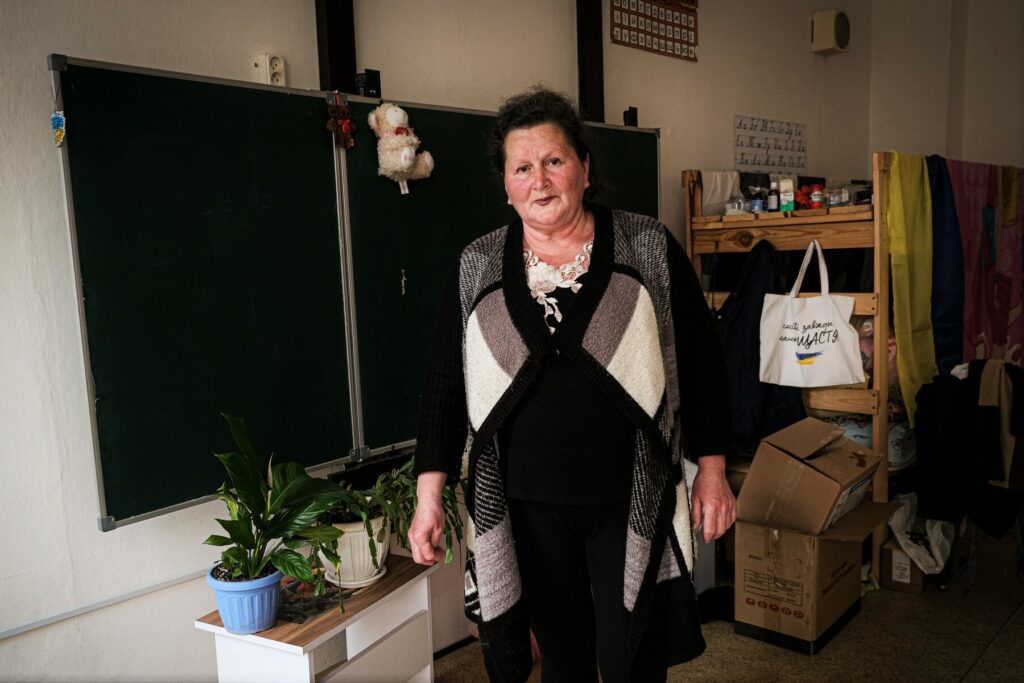
“When I found out that Medair will conduct psychological sessions for us, the first emotion I felt was a joy. I recognized it because I remembered that they gave us blankets and helped us with other equipment for the kitchen. I was so happy when we were given these blankets. They are brand new. This is my personal and I will not give it to anyone. I remember that moment now and realize that I was happy about it as a small child,” said Valentyna.
Medair helped to arrange a shelter for 65 people in Bohorodchany, Ukraine. WASH and kitchen complects, blankets, towels, and pillows were provided. A mobile team of psychologists is conducting sessions for helpers and residents of the shelter these days. Every moment we`re doing everything we can to show people that we are in this together.
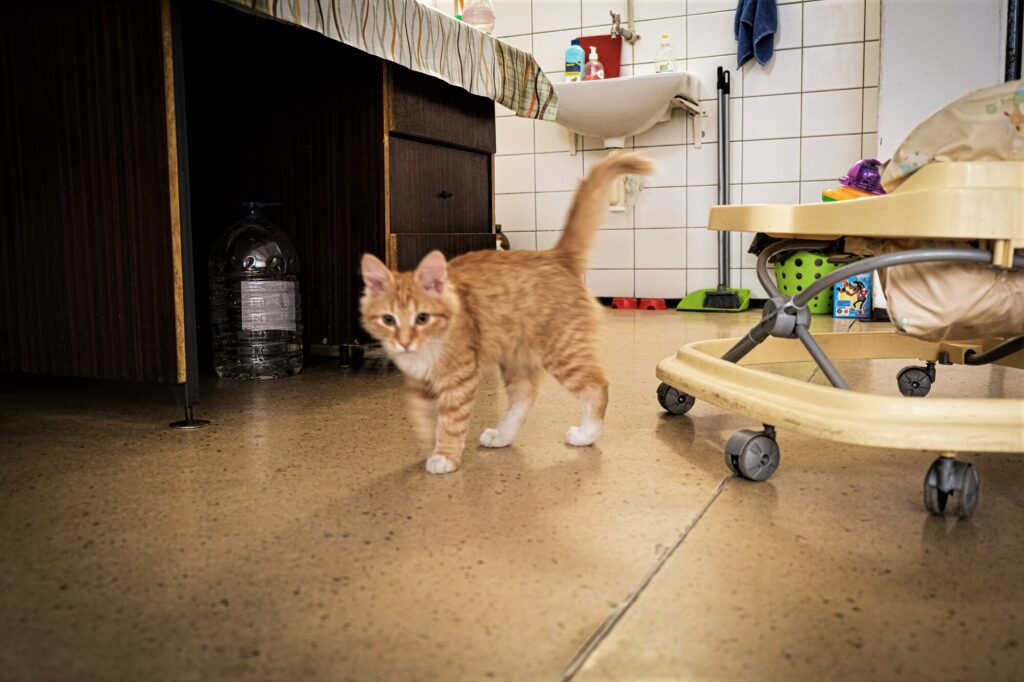
Medair services in the west of Ukraine are funded by Swiss Solidarity, World Vision, PMU, Tearfund New Zealand, Cedar, and other generous organizations and individuals.
This content was produced with resources gathered by Medair field and headquarters staff. The views expressed here are those solely of Medair and should not be taken, in any way, to reflect the official opinion of any other organization.


